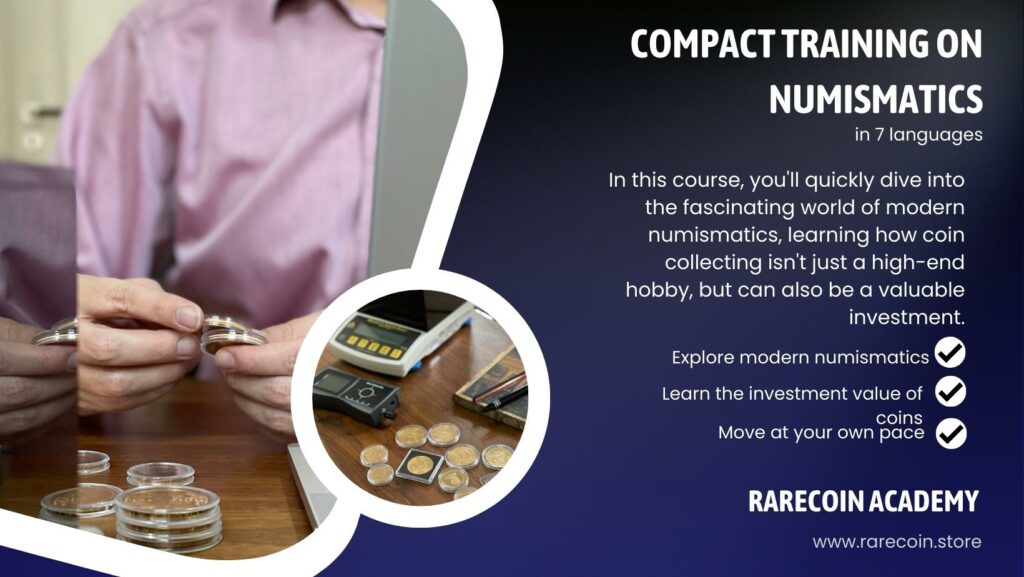
Part 8: Coin Trading & Economics
- Coin Trading Basics
- Economics of Coin Collecting: Inflation, Deflation and the Role of Precious Metals
- FAQ on the topics: Coin trading and economics
Coin trading and its relationship to the economy
Numismatics, the art and science of coin collecting, offers much more than just historical and artistic wealth. It also opens the door to deeper understanding of trade and economics, which is essential.
How does coin trading work?
Coin trading has always been an integral part of various cultures. The modern form of trading refers to the acquisition, distribution or exchange of coins, with the focus being on their rarity, historical significance, condition and current market demand.
- Determination of value and authentication: Before trading a coin, you must know its value. Institutions such as the Professional Coin Grading Service (PCGS) or the Numismatic Guaranty Corporation (NGC) offer valuable services to verify the grade and authenticity of coins.
- Marketplace and trading: Trading in coins can take place in physical marketplaces such as coin exhibitions or online auctions. It is crucial to choose trustworthy platforms to avoid cases of fraud.
- Coin trading strategies: Successful trading is often based on good timing and market analysis. Many collectors purchase coins in the hope that they will increase in value over time.
Economic factors in coin collecting
The economy always impacts the value of collectibles, and coins are no exception.
- The Effects of Inflation: When inflation continues, money becomes worth less, which is why many gravitate toward tangible assets like coins, especially if they are made of precious metals.
- Deflation and its consequences: In a deflationary economy, the value of coins may decrease, but their historical significance or rarity may still make them attractive.
- Precious metals in focus: Coins made of gold, silver or platinum always have an intrinsic value that is influenced by many factors, including global economic trends, geopolitical developments and central bank policies.
Conclusion
Numismatics, which deals with coin collecting, not only serves historical and artistic interest, but also provides insights into trade and economics. Modern coin trading focuses on criteria such as rarity, historical significance, condition and market demand. Determination of value, trustworthy trading platforms and market strategies are essential for successful handling. In addition, economic conditions such as inflation and deflation also influence the coin value. In particular, coins made from precious metals retain their inherent value due to various global factors.
Further materials :
Different ways to invest in physical precious metals like gold
What is important to know about the numismatic value of gold coins?

